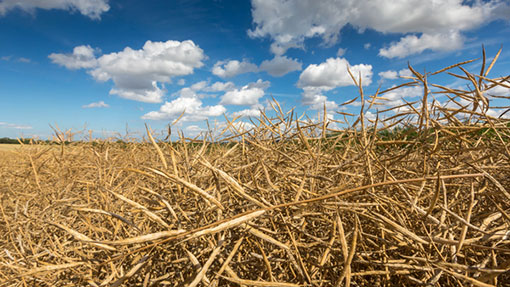Hybrid OSRs offer potential for later drilling

While early sowing of oilseed rape is widely proved to result in higher harvest yields, the pressure to delay drilling is growing with flea beetle and blackgrass becoming bigger issues.
But early seedling vigour is critical in later sown crops and hybrids have the potential to get going faster according to recent trials carried out by Bayer.
See also: Delay oilseed rape drilling to reduce pest and disease threat
Comparing sowing date and yields of conventional and hybrid varieties, the research found that the best hybrid (Fencer) had the potential to produce an extra 2.5t/ha compared with the lowest performing conventional variety (Patron) when drilled at the end of September.
In contrast, the difference was less than 0.4t/ha when the crops were drilled at the start of September.
Bayer’s Gareth Bubb says the results showed that as conditions move away from ideal, hybrid varieties have shown more autumn vigour, increasing the chance of getting a decent crop from them pre-winter.
“This year, with people concerned about flea beetle and getting a decent flush of weeds, drilling a variety that gets away quickly later in the season will be important.”
| Sowing date trial results | |||
|---|---|---|---|
| Variety | Drilled 3 Sept | Drilled 16 Sept | Drilled 30 Sept |
| Patron (conventional) | 6.06 | 4.93 | 2.53 |
| Rinker (conventional) | 6.03 | 5 | 3.78 |
| Fletcher (conventional) | 6.21 | 5.52 | 3.85 |
| Harper (hybrid) | 6.24 | 5.77 | 4.65 |
| RG21217 (hybrid) | 6.29 | 6.16 | 4.49 |
| Fencer (hybrid) | 6.43 | 6.01 | 5.03 |
| Sowing date and OSR yield (t/ha) Callow 2014 | |||

